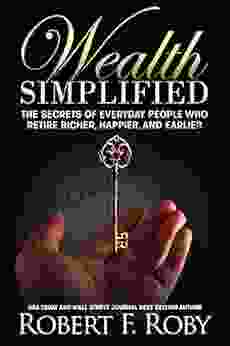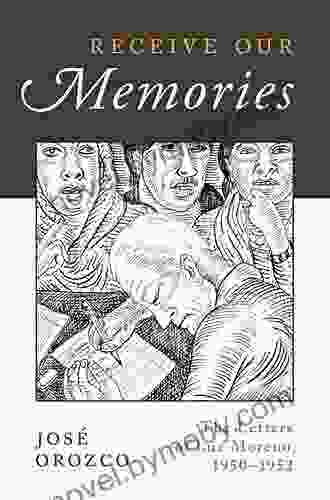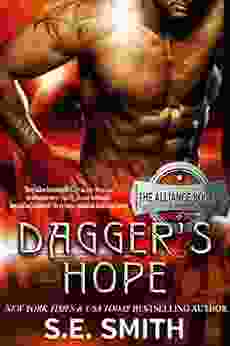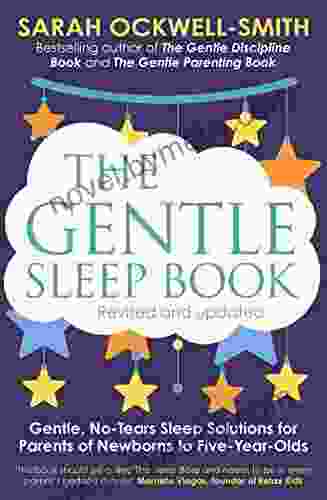Interviewing for Qualitative Inquiry: A Relational Approach

by John A. Creswell and Cheryl N. Poth
In this book, John A. Creswell and Cheryl N. Poth provide a comprehensive overview of the relational approach to interviewing for qualitative inquiry. They offer a step-by-step guide to designing, conducting, and analyzing relational interviews, and include numerous examples and exercises to help readers develop their skills.
4.6 out of 5
| Language | : | English |
| File size | : | 951 KB |
| Text-to-Speech | : | Enabled |
| Screen Reader | : | Supported |
| Enhanced typesetting | : | Enabled |
| Word Wise | : | Enabled |
| Print length | : | 226 pages |
The Relational Approach to Interviewing
The relational approach to interviewing is based on the idea that the interviewer and interviewee are co-constructing the interview experience. This approach emphasizes the importance of building rapport, establishing trust, and creating a safe space for the interviewee to share their experiences and perspectives.
The relational approach to interviewing is particularly well-suited for qualitative research that seeks to understand the lived experiences of individuals and groups. This approach can be used to explore a wide range of topics, including:
- Personal narratives
- Social and cultural experiences
- Political and economic issues
- Health and well-being
- Education
The Benefits of the Relational Approach
The relational approach to interviewing offers a number of benefits over other interview approaches. These benefits include:
- Increased rapport and trust: The relational approach emphasizes the importance of building rapport and establishing trust with the interviewee. This can lead to more open and honest responses from the interviewee.
- Greater depth of understanding: The relational approach allows the interviewer to explore the interviewee's experiences and perspectives in greater depth. This can lead to a more nuanced and comprehensive understanding of the research topic.
- Increased validity and reliability: The relational approach can help to increase the validity and reliability of the research findings. This is because the interviewer is more likely to collect accurate and reliable data when the interviewee feels comfortable and trusts the interviewer.
The Steps of the Relational Interview
The relational interview process consists of four main steps:
- Pre-interview planning: In this step, the interviewer develops the interview guide, selects the participants, and schedules the interviews.
- Interviewing: In this step, the interviewer conducts the interviews. The interviewer should focus on building rapport, establishing trust, and creating a safe space for the interviewee to share their experiences and perspectives.
- Data analysis: In this step, the interviewer analyzes the interview data. The interviewer should use a variety of data analysis techniques, such as thematic analysis, discourse analysis, and narrative analysis.
- Writing the report: In this step, the interviewer writes the research report. The report should include a description of the research methods, the findings of the study, and a discussion of the implications of the findings.
Examples of Relational Interviewing
The relational approach to interviewing has been used in a wide range of qualitative research studies. Here are a few examples:
- A study of the experiences of cancer survivors
- A study of the impact of poverty on families
- A study of the experiences of undocumented immigrants
- A study of the role of social media in political campaigns
The relational approach to interviewing is a powerful tool for qualitative researchers. This approach can be used to explore a wide range of topics, and it can lead to a more nuanced and comprehensive understanding of the research topic. If you are interested in conducting qualitative research, I encourage you to consider using the relational approach to interviewing.
References
- Creswell, J. A., & Poth, C. N. (2018). Qualitative inquiry and research design: Choosing among five approaches (4th ed.). Thousand Oaks, CA: Sage.
- Holstein, J. A., & Gubrium, J. F. (2010). The active interview. Thousand Oaks, CA: Sage.
- Kvale, S. (2011). Interviews: An to qualitative research interviewing (2nd ed.). Thousand Oaks, CA: Sage.
4.6 out of 5
| Language | : | English |
| File size | : | 951 KB |
| Text-to-Speech | : | Enabled |
| Screen Reader | : | Supported |
| Enhanced typesetting | : | Enabled |
| Word Wise | : | Enabled |
| Print length | : | 226 pages |
Do you want to contribute by writing guest posts on this blog?
Please contact us and send us a resume of previous articles that you have written.
 Book
Book Novel
Novel Page
Page Chapter
Chapter Text
Text Story
Story Genre
Genre Reader
Reader Library
Library Paperback
Paperback E-book
E-book Magazine
Magazine Newspaper
Newspaper Paragraph
Paragraph Sentence
Sentence Bookmark
Bookmark Shelf
Shelf Glossary
Glossary Bibliography
Bibliography Foreword
Foreword Preface
Preface Synopsis
Synopsis Annotation
Annotation Footnote
Footnote Manuscript
Manuscript Scroll
Scroll Codex
Codex Tome
Tome Bestseller
Bestseller Classics
Classics Library card
Library card Narrative
Narrative Biography
Biography Autobiography
Autobiography Memoir
Memoir Reference
Reference Encyclopedia
Encyclopedia Sophie Kulinski
Sophie Kulinski Pierre Schlag
Pierre Schlag Sara Henderson
Sara Henderson Silvia Lopez
Silvia Lopez Sue Tidwell
Sue Tidwell Roman Plesky
Roman Plesky Ronald M Rapee
Ronald M Rapee Robert Zubek
Robert Zubek Tom Glover
Tom Glover Wiley Blevins
Wiley Blevins Sally Jackson
Sally Jackson Seth Goldman
Seth Goldman Tracy Hogg
Tracy Hogg Roxy Marj
Roxy Marj Ruby Peter
Ruby Peter Samantha Barbas
Samantha Barbas Robyn Perry Worthington
Robyn Perry Worthington Terri Libenson
Terri Libenson Sarah J Maas
Sarah J Maas Rich Dossan
Rich Dossan
Light bulbAdvertise smarter! Our strategic ad space ensures maximum exposure. Reserve your spot today!
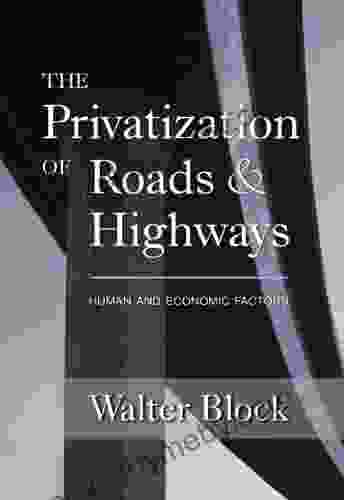
 Harrison BlairThe Privatization of Roads and Highways: Unlocking Infrastructure's Potential
Harrison BlairThe Privatization of Roads and Highways: Unlocking Infrastructure's Potential Edwin CoxFollow ·10.2k
Edwin CoxFollow ·10.2k Ian PowellFollow ·12.3k
Ian PowellFollow ·12.3k Ron BlairFollow ·5.1k
Ron BlairFollow ·5.1k Jack LondonFollow ·2.2k
Jack LondonFollow ·2.2k Blake BellFollow ·2.9k
Blake BellFollow ·2.9k Zadie SmithFollow ·11.9k
Zadie SmithFollow ·11.9k Miguel de CervantesFollow ·9.7k
Miguel de CervantesFollow ·9.7k Alex FosterFollow ·18.1k
Alex FosterFollow ·18.1k
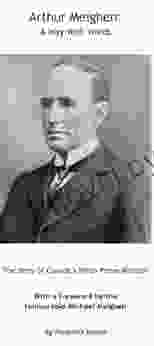
 Mike Hayes
Mike HayesArthur Meighen: A Life in Politics
Arthur Meighen was one of Canada's most...

 Bryan Gray
Bryan GrayVindicated: Atlanta's Finest
In the heart of Atlanta, a...

 Houston Powell
Houston PowellHis to Defend: A Captivating Legal Thriller That Will...
An Unforgettable...

 John Green
John GreenUncover the Riveting Tale of "Hunted: Atlanta Finest" - A...
Prepare yourself for a...
4.6 out of 5
| Language | : | English |
| File size | : | 951 KB |
| Text-to-Speech | : | Enabled |
| Screen Reader | : | Supported |
| Enhanced typesetting | : | Enabled |
| Word Wise | : | Enabled |
| Print length | : | 226 pages |





